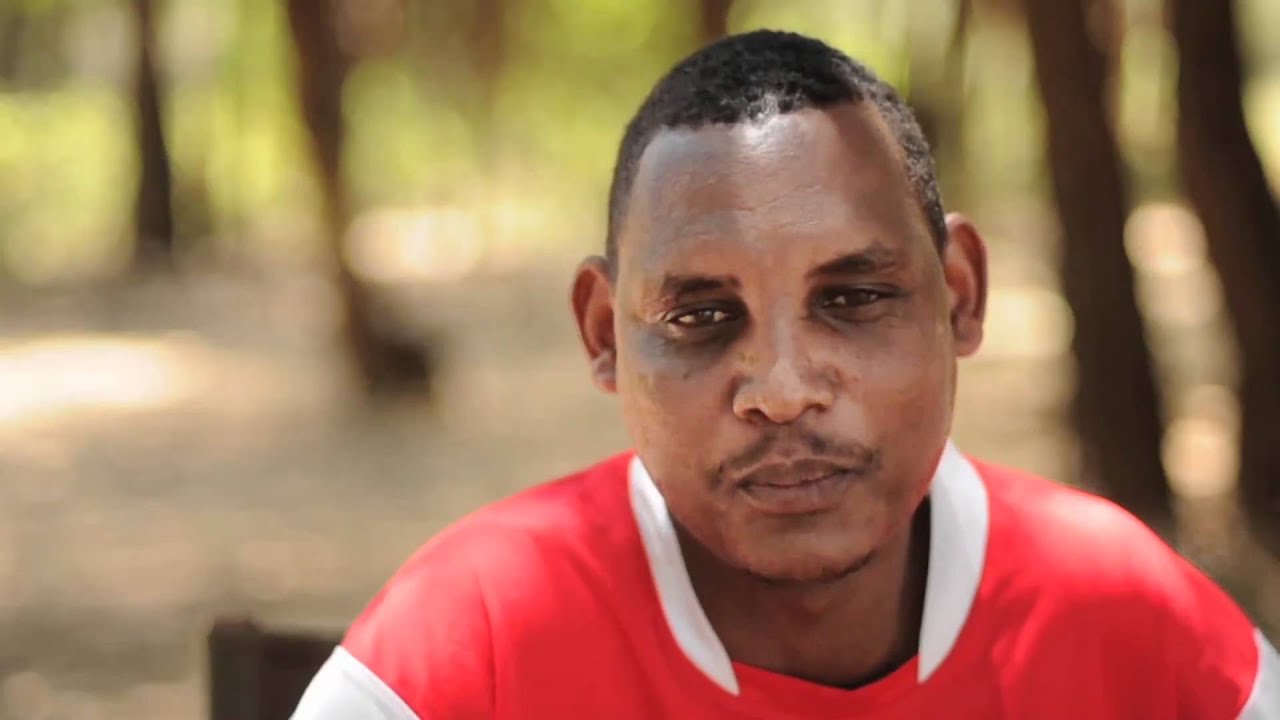filter posts:
Date
Broken by Forgiveness
 In the nation of Kenya, prejudice does not run along racial lines, but from tribe to tribe. When Stakwell Yurenimo, a Samburu in northern Kenya, did well on his 8th grade exams, the Kenyan government informed him that he had qualified to go to a high school that they would choose. They also chose his roommate, a young man named Paul, who was a member of the enemy tribe, the Turkana. Stakwell determined in his mind that there was no way he would room with a Turkana. In fact, part of his culture demanded that in order to be respected as a man, he needed to kill a Turkana. Stakwell poured water on Paul’s bed every night so that his roommate was forced to sleep somewhere else. Paul did not react in anger, but slept on the ground without complaint. This went on for several months. Meanwhile, there was friction on the soccer field as well. Stakwell was an excellent midfielder. Paul was the team’s star forward, a striker with considerable skill. But the team kept losing because Stakwell would not pass the ball to his roommate. The coach finally confronted Stakwell, who told the coach that there was nothing he could do. “You will just have to put one of us on another team,” he said. That’s what the coach did, and the first time the two teams played each other, Stakwell threw himself into Paul, trying his best to kill him. He broke Paul’s leg and knocked out several teeth. Because it was an intentional penalty, Stakwell was expelled from school, and sent home a hero to his fellow Samburu tribesmen for injuring a hated Turkana. He did not care about being expelled, but then the school told Stakwell that he would have to repay Paul for all of his medical expenses. Stakwell, a Samburu shepherd, faced an insurmountable debt. That’s when his life changed.
In the nation of Kenya, prejudice does not run along racial lines, but from tribe to tribe. When Stakwell Yurenimo, a Samburu in northern Kenya, did well on his 8th grade exams, the Kenyan government informed him that he had qualified to go to a high school that they would choose. They also chose his roommate, a young man named Paul, who was a member of the enemy tribe, the Turkana. Stakwell determined in his mind that there was no way he would room with a Turkana. In fact, part of his culture demanded that in order to be respected as a man, he needed to kill a Turkana. Stakwell poured water on Paul’s bed every night so that his roommate was forced to sleep somewhere else. Paul did not react in anger, but slept on the ground without complaint. This went on for several months. Meanwhile, there was friction on the soccer field as well. Stakwell was an excellent midfielder. Paul was the team’s star forward, a striker with considerable skill. But the team kept losing because Stakwell would not pass the ball to his roommate. The coach finally confronted Stakwell, who told the coach that there was nothing he could do. “You will just have to put one of us on another team,” he said. That’s what the coach did, and the first time the two teams played each other, Stakwell threw himself into Paul, trying his best to kill him. He broke Paul’s leg and knocked out several teeth. Because it was an intentional penalty, Stakwell was expelled from school, and sent home a hero to his fellow Samburu tribesmen for injuring a hated Turkana. He did not care about being expelled, but then the school told Stakwell that he would have to repay Paul for all of his medical expenses. Stakwell, a Samburu shepherd, faced an insurmountable debt. That’s when his life changed.
Paul came to Stakwell offering forgiveness. He did not want to be paid back. Paul explained that all the time his roommate was persecuting him, he did not retaliate, “not because I am weak, but because I am a Christian. When you were pouring water on my bed and forcing me to sleep on the ground, I was praying for you,” Paul said. Stakwell’s heart was broken by this demonstration of the Gospel. He became a Christian, and after finishing high school and attending Bible School, he began to work to bring reconciliation between the two warring tribes, the Samburu and the Turkana.
With the help of New Directions International in Graham (now Feed the Hunger), Stakwell opened a Sports Camp in the Kurungu, Kenya region. He brings hundreds of young people together three times a year for friendly competition. More than a dozen tribes are represented at the camps, and the ministry is changing the climate of the region. Stakwell told us as a group from our church visited with him several years ago, “There has not been one killing in the past two years between the Samburu and the Turkana.” There is even a Turkana village now in the Samburu region, something that would have been unheard of just a decade ago.
Being at the camp with Stakwell and his family, which includes seven children they rescued from abandonment, gave our mission team a picture in living color of what is only possible through the power of God. For He “has reconciled us to Himself through Jesus Christ, and has given us the ministry of reconciliation.”
Stakwell Yurenimo, the Samburu warrior once committed to destroy the Turkana, was broken by the forgiveness shown to him by a Turkana follower of Jesus Christ. Now he lives to help others find that forgiveness as well.
June 29, 2020
Family Memories and Father’s Day Blessings
 I wrote this column in 2011, and thought it was worth repeating in this space today. The kids are older now, 35 down to almost 21, and there are eight grandchildren!
I wrote this column in 2011, and thought it was worth repeating in this space today. The kids are older now, 35 down to almost 21, and there are eight grandchildren!
I was running last Saturday, listening to a teaching for fathers as I pounded the country pavement. Todd Wilson was talking to 500 men at a recent conference about the privileges of fatherhood. He said, “Whatever your job is, whether you are a welder, an engineer, or a pastor, the truth is that if you were to die today, someone would be in your place on the job by Monday morning, most likely. How long would it take to replace you? Not very.” Then he said, “But how long would it take to replace you as a father? The fact is, you are irreplaceable. No one could replace you.” Then he laughed and said, “Actually, someone would step into your shoes as a father to your children. God. Have you ever thought about that? You are Plan A in your house. God is your backup. That’s how important the job of the father is.”
As I listened and ran, the thought occurred to me that I should give my children a gift for Father’s Day. I thought about Paul’s words of affection for his “spiritual children” at the church in Thessalonica, when he wrote to them “You are our glory and joy.” I thought about how blessed I am to have seven children who are all grown up, mostly, and who love the Lord, love their parents, and have a vision for spending their lives in the service of the One who bought them. So, when I got back to the house, I sat down to the task of writing an email to each one of them, thanking them for who they are and for the ways I see them growing in the Lord. I also asked each one to forgive me for the many times I blew it as a dad, using anger as a ‘carving tool’ to get them to do what I wanted. The last thing I want in my life is to grow old while the affection of my children grows cold. Todd said that no father he has ever heard of has said on his deathbed, “Go get my set of golf clubs and lay them next to me. I want to feel close to them one last time.” No, a blessed man will be surrounded by his wife and children and grandchildren, the ones who matter most in this life, as he walks into the next.
On Father’s Day, we enjoyed two kinds of dessert in the living room last Sunday afternoon after lunch. Between bites of blueberry cheesecake and double-chocolate cake, we talked about family, fatherhood, and childhood memories. All seven children were there, and both grandsons. Besides that, we had the added benefit of having Micah’s father-in-law, Woody, and 5 of his six children in our home. The twelve “children” are all grown up now, the youngest being almost 12 years old. One by one, they shared memories of their childhood, of the things they learned from their fathers, while Woody and I took turns weeping. They also shared funny stories about spankings, like the time that one of my kids showed up in the laundry room (where spankings were administered) with about twelve pairs of underwear on. I told him then, “Son, I was born at night, but not last night. Go to your room and come back properly dressed.” This same son said, “Dad, you always told me that you were spanking me because you loved me. I never believed you then. But I do now. I am thankful for your love.”
I am so thankful, and so blessed.
June 22, 2020
Dads Are Some of the Best Heroes
 We hear a lot of talk these days about heroes. I am thankful for the Covid-19 heroes serving us in the medical community. I praise God for the servicemen and women who defend our freedom at home and abroad. They are heroes, as well. I will never be in either of those groups, and neither will most of you. But to all the dads reading this column, let me remind you of the heroic work that you have been called to do. Every day.
We hear a lot of talk these days about heroes. I am thankful for the Covid-19 heroes serving us in the medical community. I praise God for the servicemen and women who defend our freedom at home and abroad. They are heroes, as well. I will never be in either of those groups, and neither will most of you. But to all the dads reading this column, let me remind you of the heroic work that you have been called to do. Every day.
John G. Paton was born in a farm cottage not far from Dumfries, Scotland, May 24,1824, the eldest of eleven children. He set out to learn the trade of his father — the manufacture of stockings. For fourteen hours a day he manipulated one of the six “stocking frames” in his father’s workshop, using for study most of the two hours allotted each day for the eating of his meals.
As a youth John heard the voice of his Lord saying, “Go across the seas as the messenger of My love; and lo, I am with you.” Christ was leading him into a wider sphere of work and training, and he was determined to follow. It was hard to leave the happy home, but at length the day of separation arrived. It was about forty miles to Kilmarnock, where he would take a train to Glasgow. The journey to Kilmarnock had to be taken on foot, because he could not afford to travel by stagecoach. All his possessions were tied up in a large handkerchief, but he did not think of himself as poverty-stricken, for he had with him his Bible and his Lord.
His father walked with him the first six miles. The old man’s “counsels and tears and heavenly conversation on that parting journey” were never forgotten by the son. At length they both lapsed into silence. The father carried his hat in his hand and his long yellow locks fell over his shoulders, while hot tears flowed freely and silent prayers ascended. Having reached the appointed parting place, they clasped hands and the father said with deep emotion, “God bless you, my son! Your father’s God prosper you and keep you from all evil!” Unable to say more, his lips kept moving in silent prayer; in tears they embraced and parted.
Continuing down the road past a curve, John climbed the dyke for a last look and saw that his father had also climbed the dyke, hoping for one more glimpse of his boy. The old patriarch looked in vain, for his eyes were dim, then climbed down and started for home, his head still bared and his heart offering up fervent supplications. “I watched through blinding tears,” says the son in his Autobiography, “till his form faded from my gaze; and then, hastening on my way, vowed deeply and oft, by the help of God, to live and act so as never to grieve or dishonor such a father and mother as He had given me.” In times of sore temptation in the years that followed, the father’s form rose before John’s eyes and served as a guardian angel. (Eugene Harrison)
It was not a minister or a missionary who led John G. Paton to surrender his life to service to Christ and go to the New Hebrides Islands, becoming a messenger of Christ to the cannibals. It was the faith of his father. His hero was his dad. You want to hear the best news? God is able to make every one of us dads a hero just like that for our own children.
Happy Father’s Day, heroes.
June 14, 2020
Racism Is an Equal Opportunity Destroyer
 Oscar Hammerstein II wrote a song for the musical, South Pacific that went like this:
Oscar Hammerstein II wrote a song for the musical, South Pacific that went like this:
“You’ve got to be taught to hate and fear, you’ve got to be taught from year to year, It’s got to be drummed in your dear little ear, You’ve got to be carefully taught. You’ve got to be taught to be afraid, Of people whose eyes are oddly made, And people whose skin is a different shade, You’ve got to be carefully taught. You’ve got to be taught before it’s too late, Before you are six or seven or eight, To hate all the people your relatives hate, You’ve got to be carefully taught.”
The bad news is that most of humanity has been taught very well. The good news is that in Christ, we can learn a new way. Peter, Jesus’ right-hand man, is a perfect example.
Read the story in Acts 10. Cornelius was a God-fearing Gentile, but not a follower of Jesus Christ. He was visited by an angel who told him to send for Peter. Peter, meanwhile, wouldn’t be caught dead going to a Gentile’s house. That just simply was not done. Until God gave him a vision. Peter saw a sheet lowered from heaven and on it were all kinds of unclean animals and reptiles and birds. God spoke from heaven and said, “Rise, Peter, kill and eat.” Peter said, “By no means, Lord, for I have never eaten anything that is common or ritually unclean.” God responded with this statement that we need to have emblazoned on our hearts today, perhaps for the first time: “What God has made clean, do not call common.” This happened three times, and Peter came out of his trance just as the men from Cornelius’ house were arriving to see if he would come and visit. The Spirit again spoke and told Peter that He had sent them and that Peter should go. Peter did. He went to a Gentile’s house. He preached to a bunch of Gentiles. The Spirit fell on them and they were saved.
I see the same God working in the Old Testament, in the story of Ruth. As I preached through that little book, I was struck by this fact: on one level, the story of Boaz and Ruth is a story of racial reconciliation. Boaz, a Jew, ends up marrying Ruth, a Moabitess. Two races, one heart.
Believers, let me make it plain to you. There is no place in the heart of a Christian for racism. That was part of the message to Peter: “Do not call common what I have made clean.” God used a dietary issue to point to a heart change in Peter that the apostle needed. God renewed his thinking that day on the rooftop.
Why is racism so ugly for a Christian? Because it attacks the very heart of the Gospel, The Gospel, the good news, is the saving knowledge of Christ that is given to men and women from every tribe, tongue and nation. God is not a respecter of persons. Neither should we be.
Racism, an equal opportunity destroyer, comes in all sizes, colors, and languages. You can tell if you have a racist heart by one telltale sign. It comes out in your speech. Ethnic slurs. Racial jokes. Barbed words about people of different skin color come from the heart and wing their way through our lips. The heart can sometimes keep things hidden, but the mouth rarely does.
Been carefully taught to hate? It’s not too late to learn a new way.
June 8, 2020
